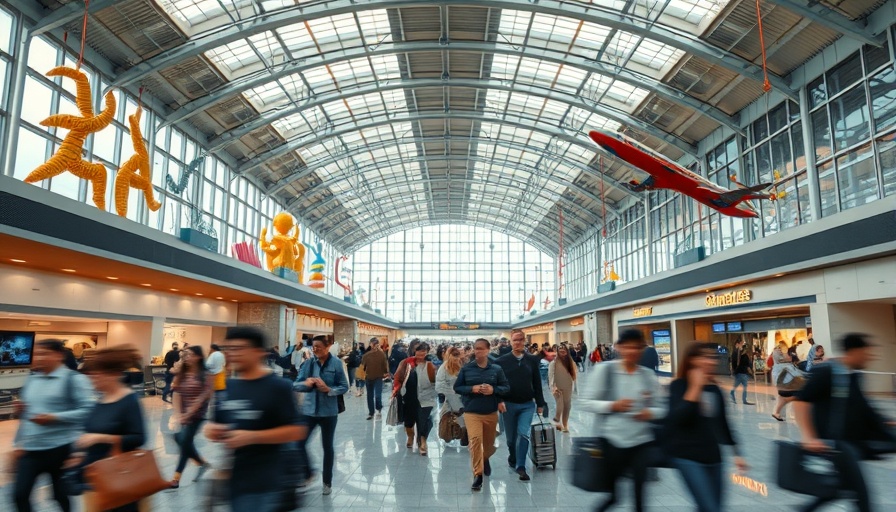
Understanding the New UDF Increase at Delhi Airport
Travel plans for international passengers flying through Delhi's Indira Gandhi International Airport just got a bit more complicated. The Airports Economic Regulatory Authority (AERA) has approved a new tariff order, leading to an increase in the User Development Fee (UDF). This fee hike means travelers will have to pay more when departing on international flights from Delhi Airport.
In 'Delhi airport hikes UDF for international passengers as AERA approves new tariff order', the focus shifts to the implications of rising travel costs, prompting us to explore how travelers can adapt to this increase.
Why Is the UDF Important for Travelers?
The UDF is a critical component of airport charges, affecting ticket prices and overall travel expenses. As more fees are added, travelers need to budget carefully. With the recent increase, it's crucial to understand how this can impact both leisure and business trips. Passengers may find themselves reconsidering their travel choices, possibly opting for flights from different airports or reevaluating their trip plans altogether.
Busy Travel Seasons and Their Effects
As we move into peak travel seasons, such as the year-end holidays and summer vacations, the timing of this hike may not be ideal for travelers making last-minute plans or those traveling on a budget. Increased costs can lead to decreased accessibility for many, especially younger travelers or families looking for affordable travel options.
Preparing for Your Next Journey
If you have upcoming international flights from Delhi, now is the time to reassess your travel budget. Consider exploring alternative routes, planning ahead for travel expenses, and researching tips to save money elsewhere, such as looking for deals on accommodations or finding less expensive local transport options.
Get Ready for Your Next Adventure
In light of the UDF increase, it's more important than ever to stay informed and prepared. As the travel landscape continues to evolve, embracing flexibility and well-planned budgeting will enhance your travel experience. Whether you're traveling for leisure or business, understanding these changes can help you make the most of your journey.
 Add Row
Add Row  Add
Add 




Write A Comment